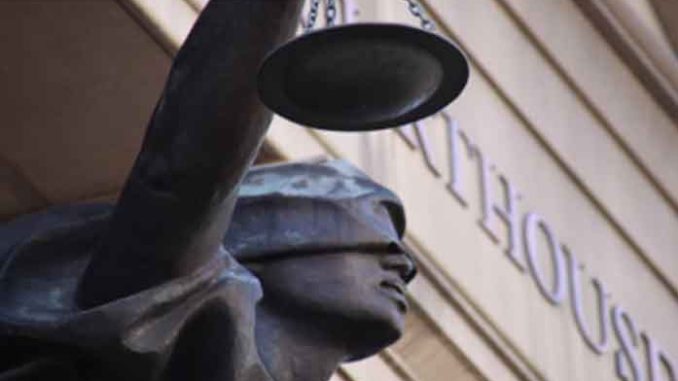
In a decision expected to be challenged to the Arizona Court of Appeals, a Cochise County judge has ordered attorneys for the Church of Jesus Christ of Latter-day Saints (LDS) to turn over a thumb drive containing a statement written by a congregant about the abuse of her children.
The statement was written by Leizza Adams sometime after Oct. 3, 2020 when she walked out of an Arizona prison where she served time for not protecting her children from years of sexual, physical, and emotional abuse at the hands of their father, Paul Douglas Adams.
Paul Adams had confessed his conduct several times to two bishops of the Bisbee Ward and was even excommunicated. He later admitted his abuse against two daughters during interviews with federal agents in 2017.
Leizza Adams gave up custody of her six children, then moved to Illinois to serve a period of post-prison probation. She became a member of an LDS ward in Illinois, and it was there that the local bishop suggested Adams write down her thoughts about what occurred in Arizona.
Now, attorneys for three of the Adams’ children want a copy of that statement, which they characterize as a report, arguing it could contain valuable information for their lawsuit against top Church officials in Salt Lake City and several church members of the Bisbee Ward.
The Church, however, contends the document Leizza Adams created and saved to a thumb drive was a confessional activity in preparation for counseling by her new bishop. As such, the document is protected from disclosure, lead Church attorney Bill Maledon argued during a May 6 hearing.
Judge Laura Cardinal disagreed with the Church’s position and gave the Church one month to hand over the thumb drive still in the possession of the bishop in Illinois. It is expected that either attorneys for the Church or for Leizza Adams will petition the Arizona Court of Appeals to ask the ruling be overruled on the grounds of religious privilege.
That order by Cardinal was one of several pretrial issues addressed during the four-hour hearing. The judge also ordered the parties to submit expedited arguments on whether Paul Adams’ LDS disciplinary file from his 2013 excommunication is privileged and if that privilege extends to two church members appointed to serve as counselors to the Bisbee Ward Bishop during the excommunication process.
One of those counselors was deposed May 5 by Lynne Cadigan, lead attorney for the Adams children. A dispute arose during the proceeding when Cadigan asked the man about Paul Adams’ excommunication and the man responded that he had been told by Maledon he could not talk about what occurred.
Cardinal promised the parties she will issue on order about access to the file in the next two weeks. Maledon informed the judge there has never been a court ruling in the U.S. forcing any church to disclose internal disciplinary records, and if Cardinal issues such an order then the Church will file an immediate petition to the court of appeals.
The judge also mediated a dispute about confidential records Cadigan wanted from Arizona Department of Child Safety. Court filings show that after Paul Adams’ arrest, all six of his children were placed into LDS households on two occasions. Cadigan contends those homes were not approved for emergency or foster care.
Cardinal ordered DCS to provide her with a CD of the files related to the placements of the three children named in the lawsuit. She will then review the data to determine what information is appropriate for release to the parties.
But by far Cardinal spent the majority of the hearing listening to constant bickering and complaints from Cadigan and Maledon about each other’s conduct. Eventually the exasperated judge chided the two long-time attorneys for being so “thin-skinned” that they would distract from the serious nature of the hearing, which was being attended by one of the victims.
The frequent -and frequently caustic- disputes among the parties about records led Maledon to ask Cardinal to appoint a Special Discovery Master to the case. A special master would be authorized to resolve most of the disputes without involving Cardinal.
The problem with the special master idea, Cadigan argued, is that the plaintiffs are three minors. She is concerned the Church defendants are trying to “out-expense” the children, Cardinal told the judge.
Cardinal ordered all parties to file a briefing on the issue with suggestions for who could serve as discovery special master. She will then rule on the Church’s request.
The judge also announced several deadlines for the parties to move the case forward, although the chance of a 2022 trial appears dimmer with each filing. The parties will meet again with Cardinal in September for a status conference.
READ MORE ABOUT LAWSUIT HERE

